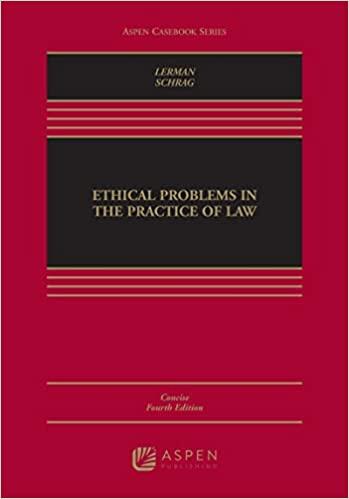Question
Description The stigma historically attached to a child born outside of marriage has receded over the years, yet special attention needs to be paid when
Description The stigma historically attached to a child born outside of marriage has receded over the years, yet special attention needs to be paid when it comes to inheritance laws and a nonmarital child. Read a complex paternity scenario and determine whether or not the child has any rights to the father's estate.
Scenario Kayte, 24, marries William, 55, after giving birth "to their son," Mason. William has three adult children from a previous marriage. After seven years of marriage, Kayte and William file for divorce. During litigation, Kayte denies that William is Mason's father and claims William has no right to custody of Mason. While DNA testing is not done, the divorce court rules that William has no legal or physical custody to Mason. Shortly after the divorce is finalized, William suddenly dies of a heart attack. His will states he leaves his estate "to his children." William's adult children challenge his will and claim Mason has no right to any of the inheritance. Instructions
In a new Microsoft Word document, answer the following questions by researching your state code:
- In what ways can paternity of a child be determined by a court in your state?
- How must paternity be proven in your state?
- How can DNA tests or similar tests be used in your state and what percentage of probability is required to establish fatherhood?
- What are the inheritance rights of an illegitimate child in your state?
- From whom can an illegitimate child inherit?
- Document whether or not Mason has any right to William's estate.
Step by Step Solution
There are 3 Steps involved in it
Step: 1

Get Instant Access to Expert-Tailored Solutions
See step-by-step solutions with expert insights and AI powered tools for academic success
Step: 2

Step: 3

Ace Your Homework with AI
Get the answers you need in no time with our AI-driven, step-by-step assistance
Get Started


